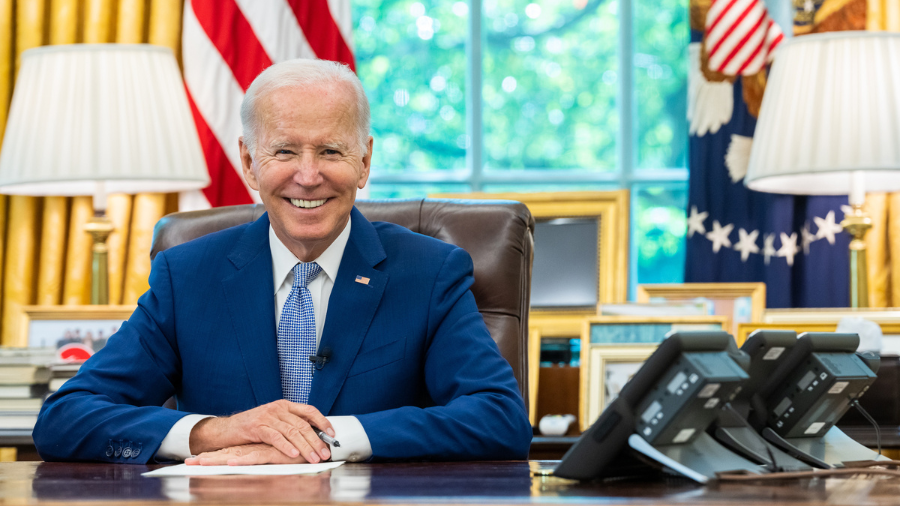This article originally appeared in the Hub.
By Richard Shimooka, October 28, 2022
Two weeks ago, the Biden administration announced a sweeping expansion of its export controls on semiconductor chips to China. This decision marks a major escalation in the growing competition between the U.S.-led West and a rising China, and it would behoove Canada to follow in its ally’s footsteps by supporting the American initiative.
Technology, industry, and innovation are key features of the emerging geopolitical competition between the West and China. To understand the situation, it might be useful to look back to the Cold War, when the United States last faced a near-peer competitor that sought to catch up and surpass the West economically. While the popular image of the Soviet Union and its Warsaw Pact allies was as an autarky, a closed economic bloc that only traded within itself, the reality was much more complex.
The Soviet Union, for instance, still engaged with the West to acquire cutting-edge technologies. Much was legally obtained from the West, only to be applied later for military uses. Other technologies were obtained under illicit means, either by circumventing controls or outright theft. Ironically, according to the Washington Post journalist Catherine Belton, this was likely one of the first jobs Vladimir Putin oversaw as a KGB agent in Dresden, Germany.
A recently declassified document in the Moscow archives shows that Soviet production in 1964 was still highly reliant on Western tooling, particularly hydraulic presses. While the Soviet Union could potentially source domestic equivalents, this would result in some serious consequences. For instance, the Kremlin would need to divert resources within its domestic industry to develop alternatives, rather than subsidizing them using Western technology and know-how. Moreover, those systems would likely be less capable than their Western counterparts and be at a higher cost due to a smaller production scale.
Export controls, largely, were weak and very mixed in their effectiveness during the Cold War. However, the 1990s saw the development of sanctions and controls as an increasingly effective policy tool, which only improved in the aftermath of 9/11. Efforts surrounding Huawei and Russian sanctions are recent implementations.
The Biden administration has made it clear that semiconductors are seen as a foundation for future economic prosperity. This reflects the new geopolitical game, in which great powers compete not only in terms of their military capabilities, energy/mineral supplies, or territorial blocs, but also in complex supply chains, networks, and ideological groups. The U.S. National Security Advisor Jake Sullivan made this clear in his July 2021 remarks, where he listed how these technologies can be directly used to undermine fundamental freedoms in Western states. Possible applications include global networked surveillance, mass autonomous disinformation systems, the dominance of critical supply chains to leverage coercion, and expanding their access to sensitive data through infiltration using privileged supply chain positions.
The liberal idealism of the post-war era, which believed that greater economic openness would result in liberalization of their societies, has reached its decisive end. State capitalism has become a critical tool for maintaining state control, which can be even further exploited by combining it with artificial intelligence (AI). In short, the Biden administration has sought to recast its relations with China in great power terms—a struggle between not just major economies but the broad ideological systems of freedom and authoritarianism.
This explains the immense breadth and depth of the announced U.S. export controls. Semiconductors possess some of the most complex supply chains in the world. Their production entails thousands of firms, many of which exist in specific niches with only one or two suppliers. The U.S.’s effort attempts to impose controls in as many places as possible, placing onerous reporting requirements for American firms operating in these countries. Consequently, a number of key firms, like Applied Materials and LAM have already decided to pull up their stakes and leave the Chinese market.
Like with the Soviet example, China will now need to spend more of its resources to develop alternatives to Western goods. It seems the current measures alone will likely cripple China’s ability to continue catching up with the semiconductor state-of-the-art, slowing progress and limiting them to chips several generations behind cutting-edge Western technologies.
As with the Cold War, allies play a key role in this new struggle. A large proportion of the critical supply chain infrastructure exists outside of China and United States, among allies like the Netherlands, Taiwan, and Japan. Some foreign firms, like the Dutch giant ASML, have expressed reticence toward implementing all of the U.S. measures. Getting them on-side is critical to ensuring that the administration’s measures have permanence and the West maintains a technological dominance over this area. Moreover, China will likely utilize every method to circumvent these measures, including the espionage of technologies.
Canada is not a major player in the semiconductor space, but it does have a role in it. Several firms play an important part in the supply chain. For instance, AMD is one of the big two for high-performance hardware accelerators and the firm has a major subsidiary in Markham, Ontario after its acquisition of ATI. And the Taiwan Semiconductor Manufacturing Company (TSMC) has established a design centre in Ottawa that focuses on “creating foundation intellectual property on TSMC’s next-generation processes.” Furthermore, the country can become a major supplier of critical minerals that are essential for production, if the resources are properly developed. Shoring up these manufacturing chains will also insulate domestic markets from price shocks due to potential supply interruptions.
Finally, Canada may also be a target of authoritarian states’ efforts in trying to circumvent U.S. export controls—either through illicit acquisition or availing themselves of Western cloud-based systems in the country.
The Biden administration’s controls have added relevance considering Deputy Prime Minister Chrystia Freeland’s speech to the Brookings Institution two weeks ago. In her remarks, she forcefully emphasized the need for democracies to work together on trade in what she referred to as “friend-shoring”, or essentially prioritizing trade flows among states that possess similar values.
Minister Freeland’s speech clearly aligns well with the export controls policy, but the government of Canada’s track record so far has been mediocre to poor at best. The decision to ban Huawei 5G equipment from Canada’s telecommunications system took over five years to be rendered, while it has constantly dragged its heels on a number of different policies in regard to China. One can also add the recent revelations of Chinese government police stations operating within Canada and CSIS warnings about infiltration by mainland intelligence services.
The US’s announced export control measures are an opportunity to overturn this instinct and chart a new course in line with Minister Freeland’s policy. Canada can be one of the first countries to endorse this effort and work constructively to work alongside the United States in its implementation—even as we build up Canadian industry to fortify Western semiconductor supply chains. We can seek to close up any potential vulnerability in the country that can be exploited by China and rebuild our diplomatic capital with Washington that has been exhausted over the past decade. Of course, this requires the leadership to announce such a change, and the effort to see it through; doing so will only strengthen and bring greater prosperity to Canada and its allies.
Richard Shimooka is a Senior Fellow at the Macdonald Laurier Institute, where he specializes in strategic studies, comparative defence management approaches and foreign policy.






